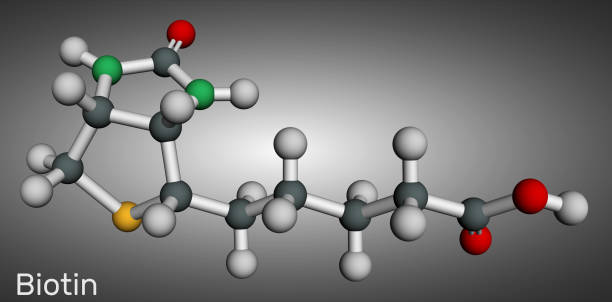Biotin is one of the B complex vitamins (Vitamin B7) found in food like milk, egg, banana, beef, liver, etc. It helps the body convert food into energy, and its deficiency can cause rash on the face and thinning of hair.
It can be obtained naturally from food, but it is available as medication to treat biotin deficiency. There are also claims that taking this drug can promote healthy hair, skin, and nails, regulate blood sugar, and help pregnant women have healthier babies.
Dosage
Small amounts of biotin are found in food, but it is recommended that adults and adolescents consume between 30mg and 100mg of the drug daily. The same amount is recommended for pregnant women, and the dosage for children depends on their age, but 5mg – 25mg daily doses have been safely used in children.
Speak to your healthcare provider to determine the best dose for a specific condition. In addition, this medication can be safe for some people when applied to cosmetic products that contain up to 0.6% biotin.
Side Effects of Biotin
This drug is safe for most people when taken in recommended doses but can still cause some side effects for others.
The side effects include:
- Stomach upset.
- Acne.
- Skin rashes.
- Insomnia.
- Excessive thirst.
- Kidney problems.
Precautions
Biotin supplements may interact with other medications, so it is advisable to speak to your doctor about other medications you are on before adding this drug as a supplement.
In addition, the drug might interfere with the results of some blood lab tests. It can cause lab tests to give a falsely high or low result, leading to an incorrect diagnosis. Before doing any lab test, tell your doctor or healthcare provider if you are on biotin supplements. You may need to stop the supplements before taking the test.
Most multivitamins contain low doses of biotin, so it is usually nothing to worry about, but to be safer, speak to your doctor about it.



